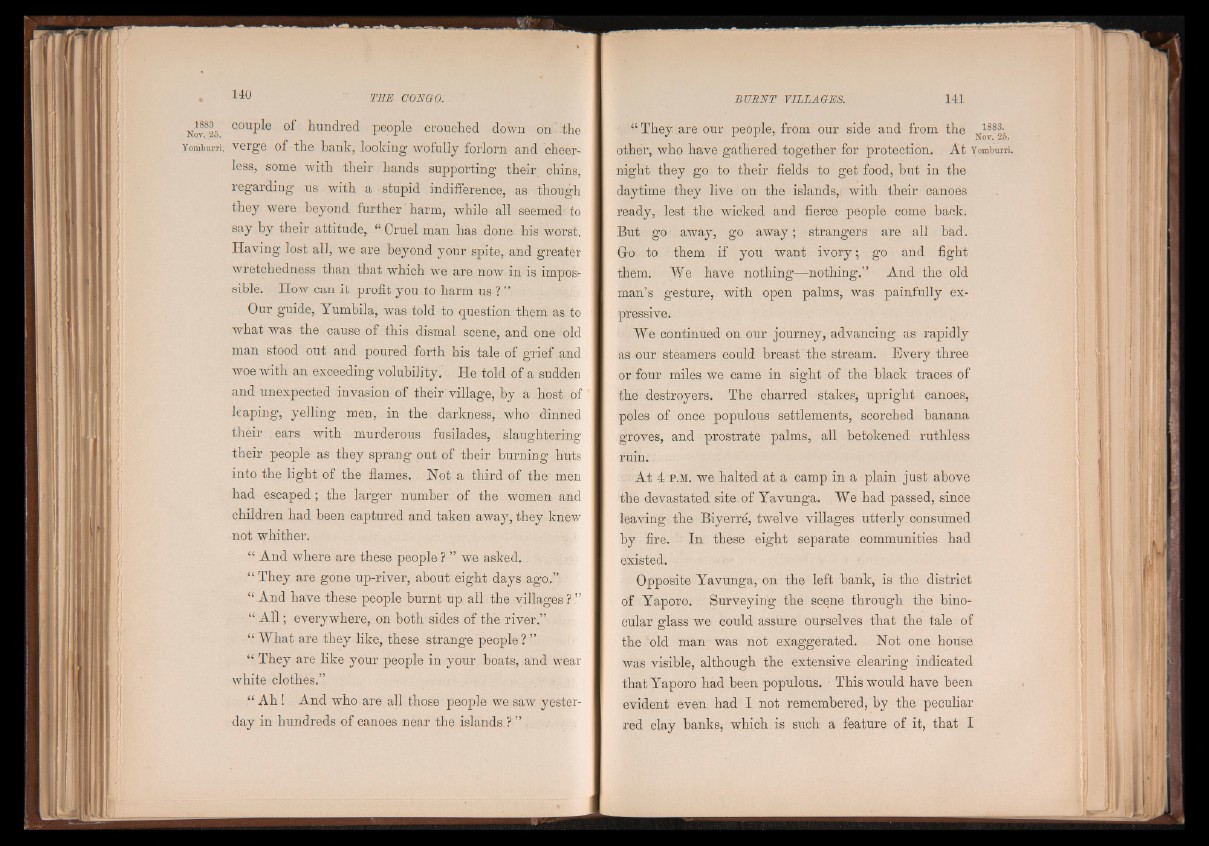
couple of hundred people crouched down on'/the
verge of the bank, looking wofully forlorn and cheerless,
some with their hands supporting their chins,
regarding us with a stupid indifference, as though
they were beyond further harm, while all seemed to
say by their attitude, “ Cruel man has done his worst.
Having lost all, we are beyond your spite, and greater
wretchedness than that which we are now in is impossible.
How can it profit you to harm us ? ”
Our guide, Yumbila, was told to question them as to
what was the cause of this dismal scene, and one old
man stood out and poured forth his tale of grief and
woe with an exceeding volubility. He told of a sudden
and unexpected invasion of their village, by a host of
leaping, yelling men, in the darkness, who dinned
their: ears with murderous fusilades, slaughtering
their people as they sprang out of their burning huts
into the light of the flames. Not a third of the men
had escaped; the larger number of the women and
children had been captured and taken away, they knew
not whither.
“ And where are these people ? ” we asked. |
f* They are gone up-river, about eight days ago.”
I And have these people burnt up all the villages ? ”
“ A ll; everywhere, on both sides of the river.”
“ What are they like, these strange people ? ”
“ They are like your people in your boats, and wear
white clothes.”
“ Ah ! And who are all those people we saw yesterday
in hundreds of canoes near the islands, ? ”
“ They are our people, from our side and from the
other, who have gathered together for protection. At YomWi.
night they go to their fields to get food, but in the
daytime they live, on the islands, with their canoes
ready, lest the wicked and fierce people come back.
But go away, go away; strangers are all bad.
Gro to them if you want ivory; go and fight
them. We have nothing—^nothing.” And the old
man’s gesture, with open palms, was painfully expressive.
We continued on our journey, advancing as rapidly
as our steamers could breast the stream. Every three
or four miles we came in sight of the black traces of
the destroyers. The charred stakes, upright canoes,
poles of once populous settlements, scorched banana
groves, and prostrate palms, all betokened ruthless
ruin.
At 4 p .m . we halted at a camp in a plain just above
the devastated site of Yavunga. We had passed, since
leaving the Biyerre, twelve villages utterly consumed
by fire. In these eight separate communities had
existed.
Opposite Yavunga, on the left bank, is the district
of Yaporo. Surveying the scene through the binocular
glass wTe could assure ourselves that the tale of
the old man was not exaggerated. Not one house
was visible, although the extensive clearing indicated
that Yaporo had been populous. This would have been
evident even had I not remembered, by the peculiar
red clay banks, which is such a feature of it, that I